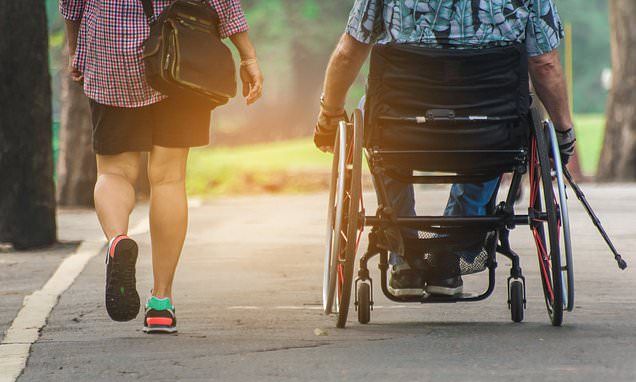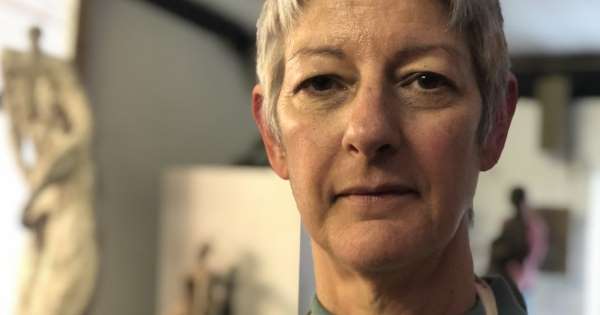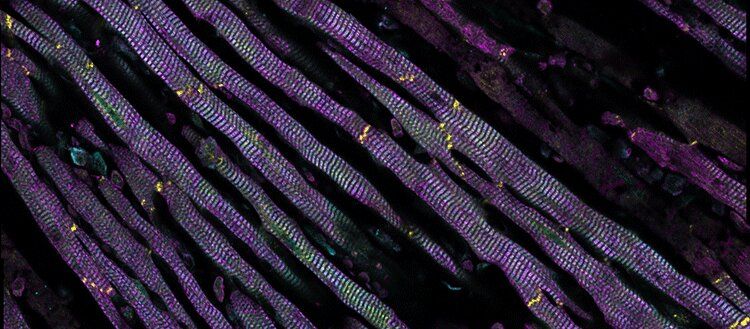Players with quadriplegia are using neuroscience and video games to take on the world.


Dr. Qingsong Zhu, the COO of Insilico Medicine, discussed the use of deep learning in creating biomarkers for aging. Initially discussing existing clocks and the problems with animal translation, he went on to discuss what sorts of markers are ideal for age-related research and the details of training and testing a model that works with these markers, showing that a deep model compares favorably to other models.
He also used his model to show that smoking does, in fact, cause accelerated aging.
Bio printing footage provided by College of Engineering, and heart valve footage provided by Regenerative Biomaterials Group, Carnegie Mellon University.
https://regenerativebiomaterials.com/
Lulzbot invited us out to showcase the BIO, their OPEN SOURCE 3D printer capable of 3D bioprinting. Materials like unmodified collagen and fetal stem cells! It’s open source, and launches at a price of $7500 USD.
http://www.lulzbot.com/bioprinting
#3dprinting #3dbioprinting #lulzbotbio
We have a SECOND CHANNEL!
http://youtube.com/technicallynerdy
Magigoo: http://thought3d.com


MS is thought to affect 100,000 people in the UK, with 14 patients being diagnosed every day, MS Society statistics show.
And in the US, nearly one million are living with the condition, according to the National Multiple Sclerosis Society.
The disorder, which strikes twice as many women as men, damages nerves in the body, causing mobility loss, sight problems, fatigue and pain.


By and Targeting Metabesity to examine the links between metabesity, Longevity and the USA’s current health shortfalls, including low health-adjusted life expectancy (“HALE”) and the large gap between HALE and life expectancy, despite its extremely high per-capita healthcare expenditures, and to chart policy recommendations to neutralize this vast health vs wealth deficit.
Metabesity and Longevity: USA Special Case Study is an 85-page open-access analytical report produced jointly by Aging Analytics Agency and Targeting Metabesity to examine the links between metabesity, Longevity and the USA s current health shortfalls, including low health-adjusted life expectancy ( HALE ) and the large gap between HALE and life expectancy, despite its extremely high per-capita healthcare expenditures, and to chart policy recommendations to neutralize this vast health vs wealth deficit.
Link to Special Case Study: https://aginganalytics.com/longevity-usa/
As the issue of aging population intensifies, sick care will become increasingly expensive and ineffective. America needs to rapidly deploy a government-led shift from treatment to prevention, and from prevention to precision health, using deep diagnostics and prognostics in combination with biomarkers of aging, metabesity, health and intervention-effectiveness, to delay the onset of disease with as minimal intervention as possible, as early as possible. Seeking synergies between Longevity research, P4 (preventive, personalized, precision and participatory) medicine and Artificial Intelligence has the potential to enable rapid and widespread policy and infrastructural reforms for USA healthcare to quickly boost National Healthy Longevity, but only with sufficient government commitment.

Each year, heart attacks kill almost 10 million people around the world, and more than 6 million die from stroke. A heart attack is caused by clots that block arterial blood flow. Tissues are deprived from blood-borne oxygen. Under these conditions, the affected tissues undergo a rapid necrosis. But why? Scientists at the University of Geneva (UNIGE), Switzerland, the University of Lyon and the Institut National de la Santé et de la Recherche Médicale (Inserm), France, have discovered that the synthesis of a lipid called deoxydihydroceramide provokes necrosis. This lipid accumulates in the absence of oxygen and blocks cellular functions. By inhibiting its synthesis in a mouse suffering a heart attack, the biologists were able to reduce the tissue damage by 30 percent. These results, published in Nature Metabolism, suggest a new model of treatment for victims of heart attack or stroke.
“But what causes necrosis under these conditions?” asked Howard Riezman, professor in the Department of Biochemistry of the Faculty of Science at UNIGE and Director of the NCCR Chemical Biology. Not all animals are so sensitive to the absence of oxygen—worms can live three days without oxygen, some turtles can live several months, and certain bacteria indefinitely.
“That is why we sought to find the link between the lack of oxygen and tissue necrosis in mammals,” said the scientist.
We’re continuing to release talks from Ending Age-Related Diseases 2019, our highly successful two-day conference that featured talks from leading researchers and investors, bringing them together to discuss the future of aging and rejuvenation biotechnology.
Dr. Peter Fedichev, co-founder of GERO, discussed biomarkers in the context of mouse research, particularly physiological frailty and blood cell counts. He introduced a new index, the Dynamic Frailty Index, and explained it in detail, including the advantages that it has over conventional frailty models and epigenetic clocks. He also explained the differences between humans and mice, most notably the fact that interventions that work in mice do not always apply to human beings.
Brain-machine interface enthusiasts often gush about “closing the loop.” It’s for good reason. On the implant level, it means engineering smarter probes that only activate when they detect faulty electrical signals in brain circuits. Elon Musk’s Neuralink—among other players—are readily pursuing these bi-directional implants that both measure and zap the brain.
But to scientists laboring to restore functionality to paralyzed patients or amputees, “closing the loop” has broader connotations. Building smart mind-controlled robotic limbs isn’t enough; the next frontier is restoring sensation in offline body parts. To truly meld biology with machine, the robotic appendage has to “feel one” with the body.
This month, two studies from Science Robotics describe complementary ways forward. In one, scientists from the University of Utah paired a state-of-the-art robotic arm—the DEKA LUKE—with electrically stimulating remaining nerves above the attachment point. Using artificial zaps to mimic the skin’s natural response patterns to touch, the team dramatically increased the patient’s ability to identify objects. Without much training, he could easily discriminate between the small and large and the soft and hard while blindfolded and wearing headphones.